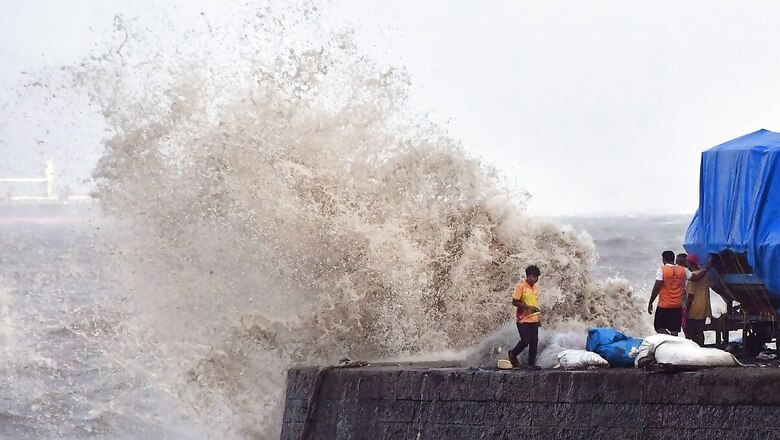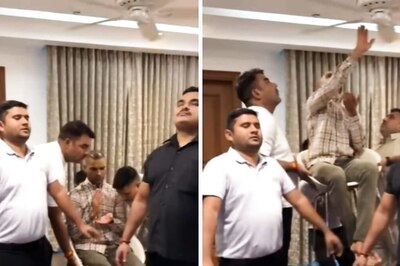
views
India has shown resolve to make disaster risk reduction an urgent priority, says National Disaster Management Authority (NDMA) member secretary Kamal Kishore as the country gears up for the G20 Leaders’ Summit in New Delhi from September 9 to 10.
From floods to cyclones, there has been a surge in the frequency and intensity of natural disasters across the world. However, it was for the first time that this global forum consisting of the world’s largest economies had a separate working group on disaster risk reduction under India’s Presidency.
“In the past, G20 leaders’ statement has never really addressed disaster risk reduction issues. We are hoping that this year, for the first time, we should have a very clear articulation of their support for these efforts across countries,” said the NDMA member-secretary in an exclusive interview to News18, as the final negotiations get underway.
India had set five priorities during its Presidency with special focus on three — early warnings for all, disaster resilient infrastructure and a national financing framework for the same. “We are standing at the mid-point of Sendai Framework (2015-2030). This is the time to do course correction. This is the time to give a sense of urgency to disaster risk reduction efforts,” said Kishore.
Taking The Lead On Early Warning
Every year, millions of people are affected by cyclones across countries. At least a third of them do not have access to any early warnings. Citing the “zero mortality” during Cyclone Biparjoy that hit Gujarat coast, Kishore said the country can lead by example, and help others in bridging these gaps. “There is still a lot of disparity among countries, and India can share that knowledge and make sure we have a framework of tangible cooperation to close this gap. G20 as large economies have the responsibility to fix this universal coverage of early warning. We are working with small developing island countries in building resilient infrastructure, while also trying to upgrade our capacity,” he said.
In its outcome document in Chennai, the G20 Working Group had also expressed deep concern over climate-related disasters increasing in frequency and intensity, and reaffirmed commitment to Paris Agreement 2015 to keep warming below 1.5℃ of pre-industrial levels. Another key priority was to push for a financing framework for disaster resilience and increase fund-allocation. “We are among the few countries who have allocated separate resources, not only for disaster response but also for resilience. G20 countries for their domestic and international work must have a financing framework which must cover all. As of now, it’s mostly reactive, but it should be proactive,” he added.
Ready to Roll Out Emergency Cell Broadcast for Disasters
With the successful rollout of the ‘Common Alerting Protocol’ based integrated system for speedy dissemination of all disaster-alerts through SMS, the NDMA is now set to launch the Cell Broadcast alerts.
Unlike SMS, these alerts would flash on the mobile screen with ‘emergency warning’. “Our SMS alerts are geo-targeted. No matter where you are travelling, you will get an alert based on the location you are in currently. But the cell broadcast technology will override even the SMS, so it will get due public attention. People will be warned if any weather event exceeds a certain threshold and becomes a disaster,” said the NDMA member-secretary.
Landslides Mitigation Plan for All Mountain States
As floods and disasters ravage large parts of the country, the apex disaster management body is also working on a mega plan on landslide risk mitigation for all mountain states. This would entail susceptibility mapping and high-resolution risk assessment for all affected states and early warnings for such events. “It is a very challenging exercise. Unlike other disasters which affect a large area, landslides vary from site to site. We have to install sensors to get accurate data to understand the contributing factors, and plan mitigation measures,” he added.
A comprehensive programme for urban floods is also underway for seven cities, including Mumbai, Chennai, Bangalore and Ahmedabad to develop a better system for managing the situation. “Even in terms of climate change, there is a lot of uncertainty in how its effect will manifest at local levels. To prepare for disasters, we need very specific local information, and we are still developing that,” he added.




















Comments
0 comment